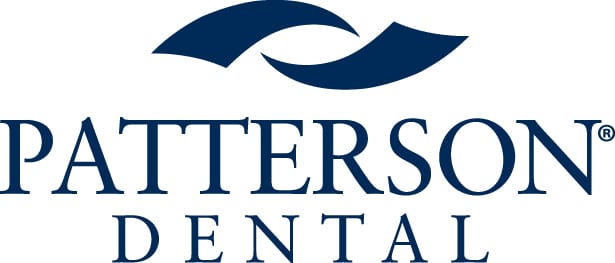By: Bruce Bryen, CPA/CVA
Now that the dental school graduate has gone from new hire/associate to a somewhat more experienced dentist, he or she may feel ready to buy a dental practice, either an existing office or to “start up” a new one.
Some may think about starting their own practice rather than acquiring an existing one because of ego, identity and branding and will need advice which ever route is taken.
Starting Your Own Dental Practice
There may be many reasons for developing the opinion that the time is right for either an acquisition of an up and running profitable practice or the start up from ground zero of a new one.
Find an Experienced Dental CPA
If the dentist is ready to begin this journey, it is the right time to get an experienced dental CPA or dental financial person involved who understands what is needed so the newly ready dentist has some support when making the decision to go ahead.
Some examples about why the associate deems the time is right follow.
- One reason may be that in his or her opinion, the experience gained has already been enough to go ahead and be the boss.
- Another may be that the dentist in charge of the practice where the graduate works or previously worked is behind in his or her knowledge of state of art equipment and clinical procedures for patient treatment.
The idea is that this potential new owner thinks a better job can be accomplished clinically for the patient as well as for receiving an increase in the income stream coming to him or her. This is probable with an individually owned practice rather than by working as an associate assuming that things go well at the dental office.
What will the dental CPA offer as advice to the “ready to go,” potential owner?
One of the first things offered by the dental CPA to the potential owner will probably be to go slowly and to get the best understanding possible of what lies ahead. There is time needed to determine the differences in practice overhead, net income levels and financing the purchase that will be required.
He or she will explain the differences in timing for the patient flow between a “start up,” practice and the acquisition of an existing profitable practice.
Start-Up Practice
With the “start up,” practice, the dentist should expect delays from the lender, contractors who will be fitting out the interior of the space and the office supply and equipment company who will all be checking credit scores.
New Venture
Since the demographics are critically important in a new venture without a history of cash flow and income, the parties involved with the office will have to look at the dentist individually for credit and his or her projections of cash flow and income for the ability to repay the loan.
The acquisition of an existing profitable practice will have information available in the form of tax returns and financial statements to provide to each interested party. A dental practice valuation should be a necessity for the acquisition of an existing practice to assist in determining the price to offer for the acquisition.
Cash flow projections should be prepared for the “start up.” This data will assist in proving that the ability to repay the loan will be available from the dental practice and the individual dentist will not be under the microscope for credit worthiness on a solo basis to be able to amortize the loan if it is an acquisition.
The dentist’s credit is still an important factor. Typically, if he or she will have a reasonable credit score and some liquidity. The track record of the dental practice being acquired will lend a substantial portion of fact for the lender to see the repayment plan and from where it is coming. It will be what is needed and available for proof of the ability to repay the loan from which the contractors will be paid as well as the dental supply and equipment company.
The summary conclusion is that the “start up,” practice will be much more difficult to finance and will take more time to be ready to open and to provide profitability as quickly as the acquisition of a profitable dental practice that is on the market for transitioning. This should be the advice from the dental CPA or dental financial advisor and it can be supported with marketing cost projections for each.
Compare an Aquisition vs a Start-Up
Marketing Cost
With the acquisition of an existing profitable practice, historical data is available to determine prior marketing costs, and the creation of new patients based on the expenses listed as marketing and advertising expense. These items will probably continue at their existing levels or if increased, at a modest amount only after the acquisition.
On the other hand, the marketing costs for a “start up,” practice will be high in the early stages of operations and continuing for about a year, since there it will be rare if anyone knows much about the “start up.” Getting the name of the practice and the dentist/owner into the community is a must.
Patient Aquisition
Under normal circumstances, when an existing dental practice is sold, there is communication from the previous owner introducing the new owner to the existing patients to create a flow of information so that no one misses appointments. It is important that none of the patients are worried about who the new owner is. The introduction of the new owner is normally through a letter sent to the patients describing briefly the new doctor’s credentials and welcoming him or her to the practice.
Many times the transitioning dentist remains at the practice for a short term to ease the transition with the new owner. The buyer of the existing practice then has an upper hand in getting to know the patients and can look forward to a cash flow to assist in paying down the loan for the acquisition as well as the expected overhead.
The “start up,” doesn’t have an introduction to patients so must spend more heavily to become known to the community in which he or she will be working. The overhead for the “start up,” will be lower early on but will increase while the practice is growing compared to the higher overhead at the existing practice that was acquired. The equipment will probably be new at the “start up,” compared to having older equipment at the acquired practice.
These are just some of the differences between the two types of practices for the potential new owner. Retaining a dental CPA will assist no matter which option is chosen.

Bruce Bryen, CPA/CVA
Dental Practice Valuation Analyst, Baratz & Associates, PA
Up Next: Benefits of Being a Dentist
Photo by Daniel Frank from Pexels


